Caution and Hope for Diplomat Kids
When TCK Training released our white paper, Caution and Hope: The Prevalence of Adverse Childhood Experiences in Globally Mobile Third Culture Kids, we knew we were only beginning to scratch the surface of what we could learn from the data we had collected from 1,904 individuals who completed our 2021 survey on developmental trauma in globally mobile Third Culture Kids. This is part of a series of blog posts that looks a little deeper at certain sub-groups represented in the data.
Caution and Hope for Diplomat Kids
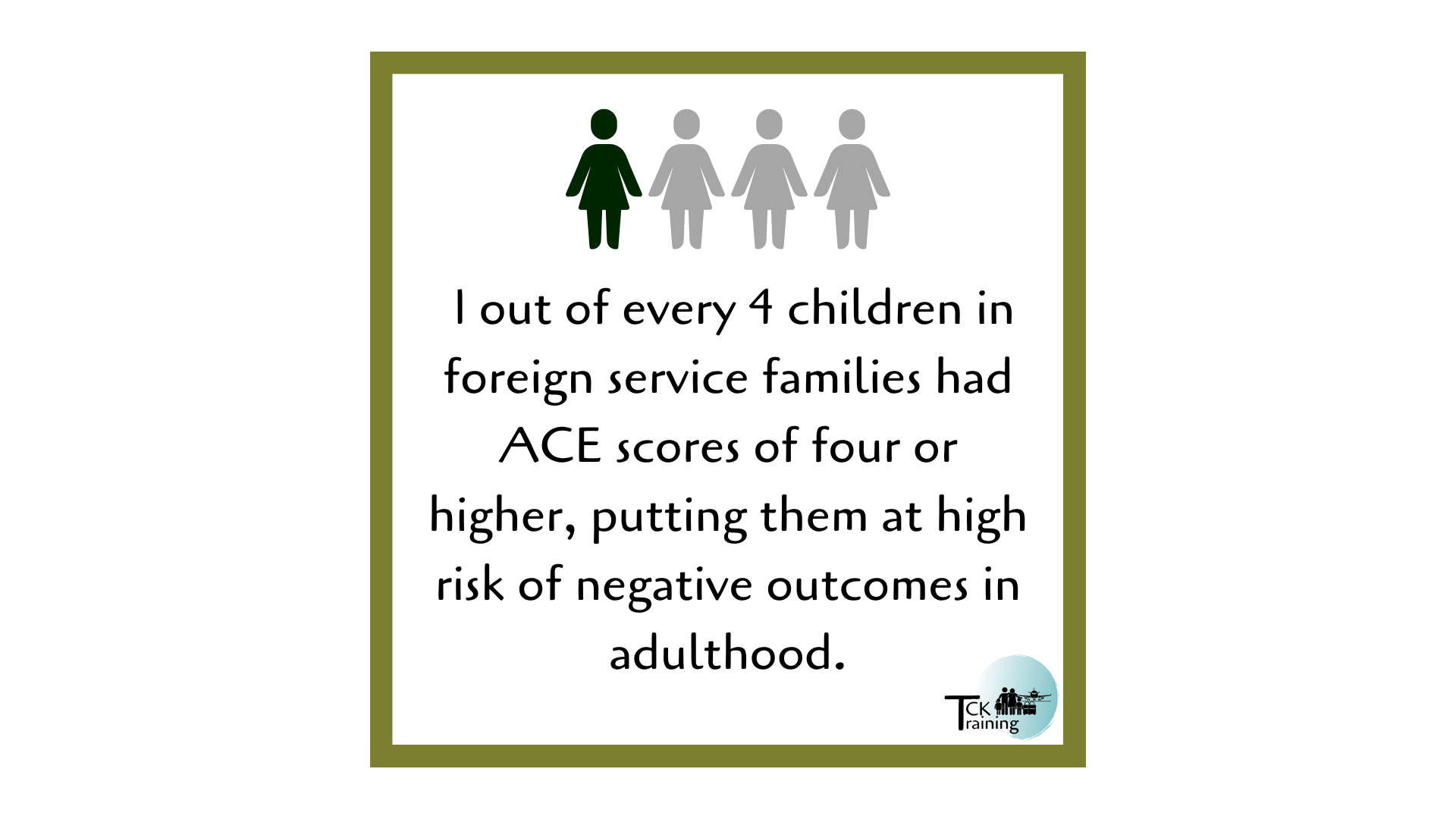
The results of our 2021 survey of developmental trauma among globally mobile Third Culture Kids gave reasons for caution, but we also know there is hope to mitigate the risks of international mobility. One of the core reasons families move away from their passport country by choice, taking children with them, is in service to their country’s government. For the purposes of our survey, we named this sector “diplomat” and defined it as:
107 of the 1904 individuals who took our survey self-identified as belonging to a diplomat family, making up 6% of the total. This sector had some differences to other TCKs in our sample. For example, the majority said that international school was their primary educational experience - 82% of diplomat kids, compared to 53% of other non-missionary TCKs (missionary TCKs had a very different educational distribution).
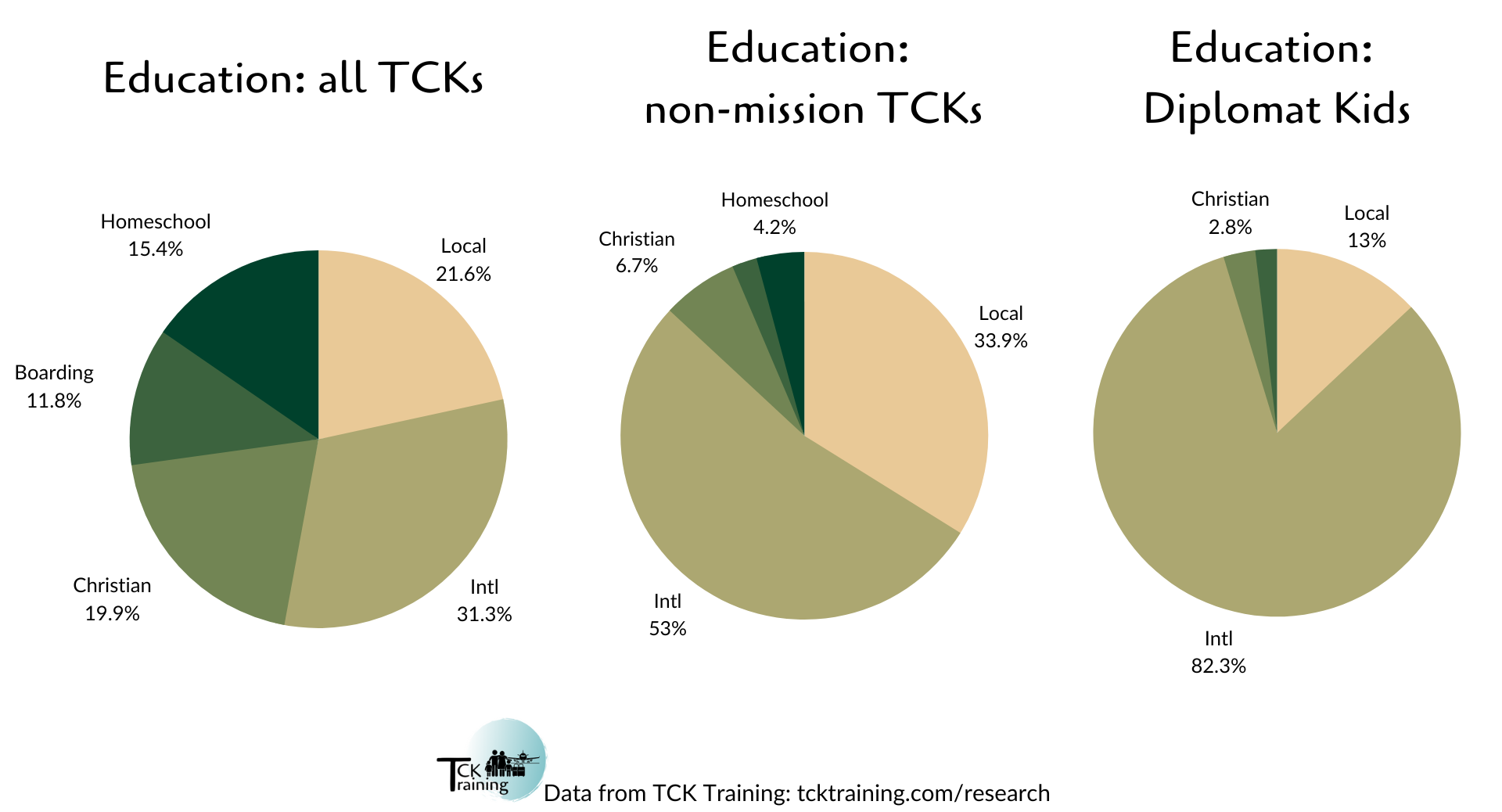
Adverse Childhood Experiences
The ACE score is a way to quantify the number of Adverse Childhood Experiences that occur in an individual’s life before the age of 18. Hundreds of studies since the 1990s have found a link between an ACE score of 4 or higher and a higher risk of various negative health outcomes. Missionary kids had lower ACE scores than individuals from other mobility sectors. Among the non-mission group, the ACE scores of diplomat kids almost equal to (slightly higher) than other sectors.
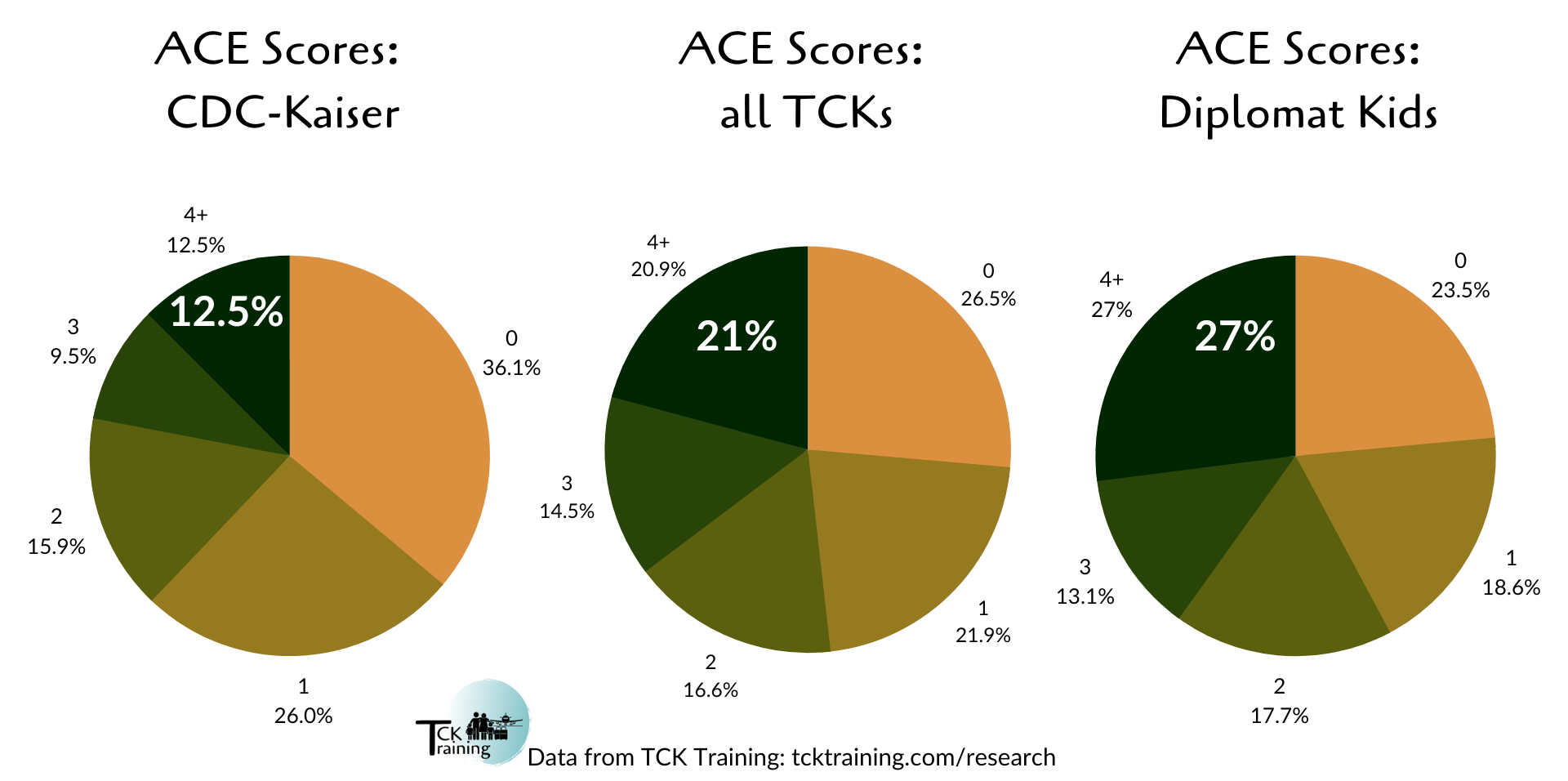
An important factor we discovered in our research is that extremely high location mobility was clearly correlated with high ACE scores. For individuals in the highest mobility categories (moving locations >10 times or moving house >15 times) the rate of high risk ACE scores rose to 32% and 33% respectively.
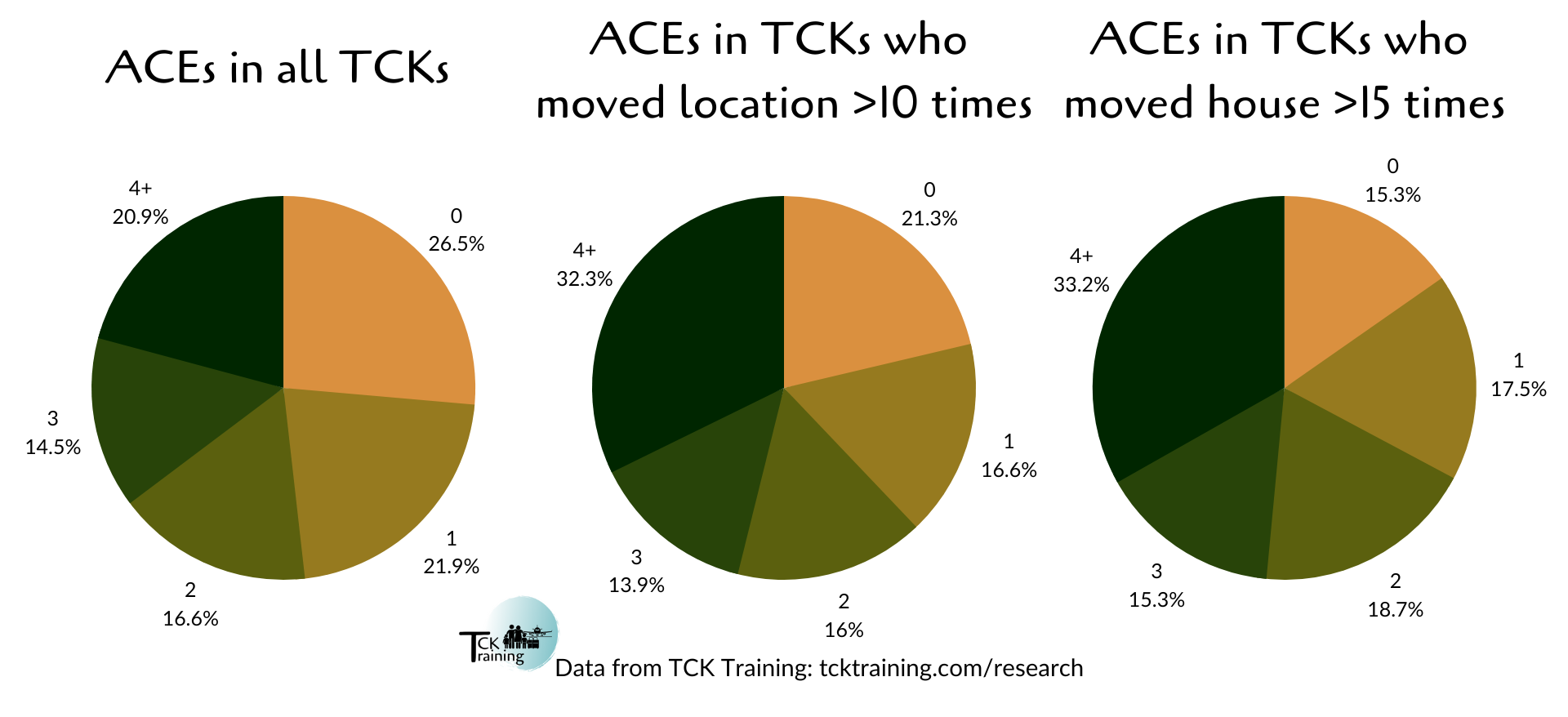
Mobility in Diplomat Kids
While diplomat kids did move frequently, they were far less likely to experience this extremely high location mobility. Only 4% of diplomat kids moved locations 10 or more times, compared to 17% of all TCKs, and 3% of diplomat kids moved houses 15 or more times, compared to 14% of all TCKs.
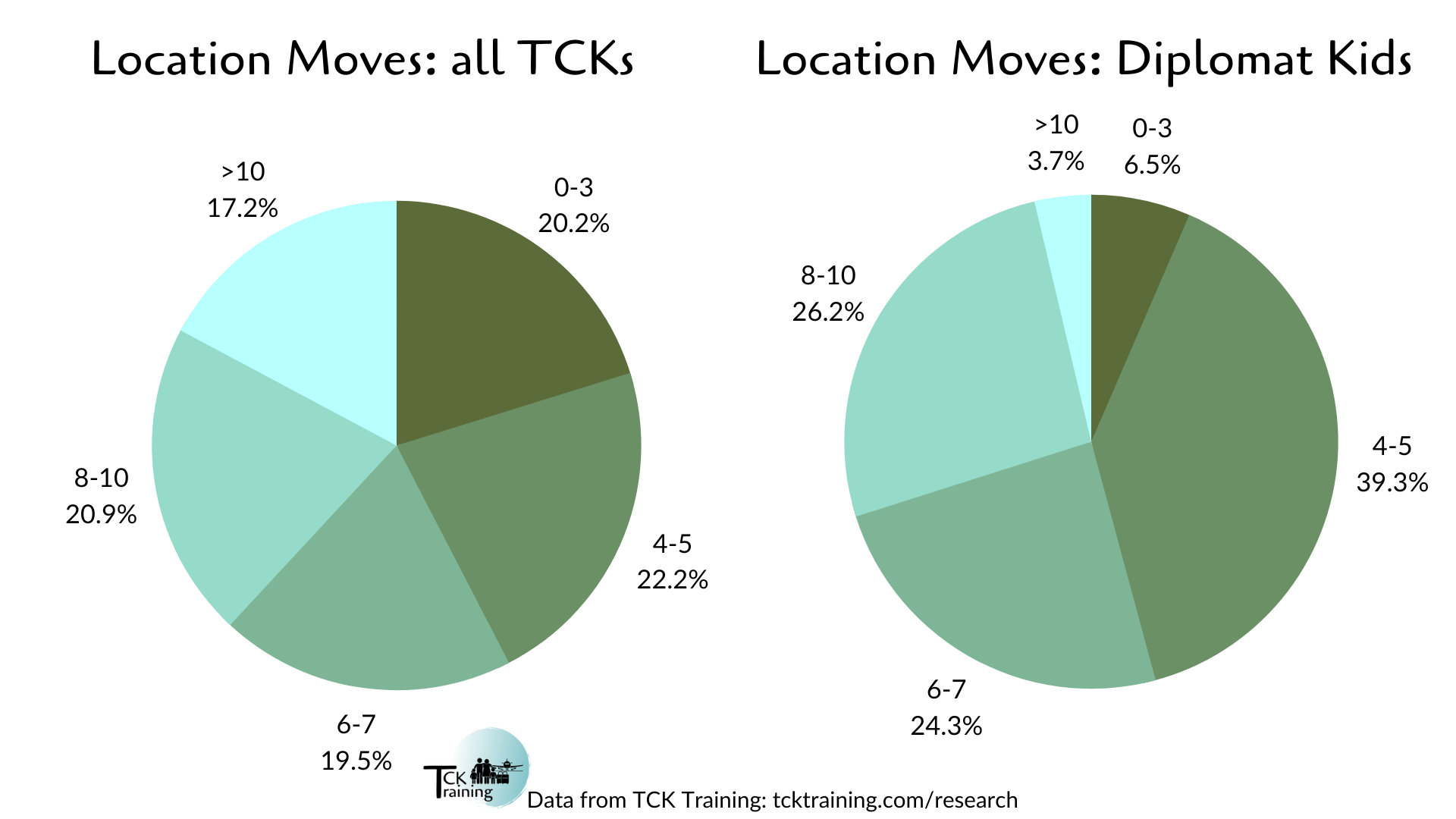
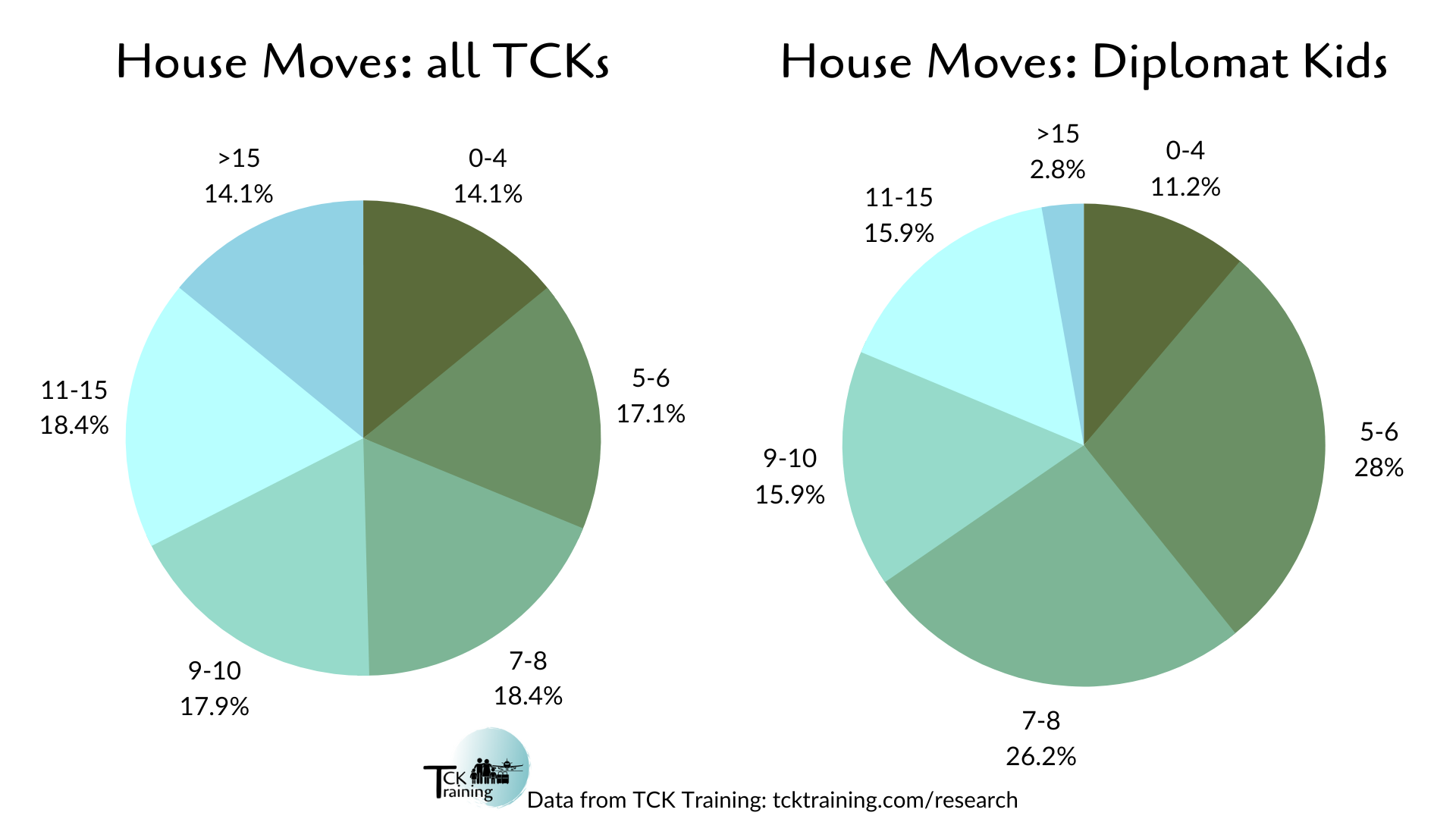
As Diplomat kids did not have this high mobility, yet had equivalent rates of high ACE scores, we went through our data again looking for the x factor behind their higher ACE scores.
The diplomat kids in our sample were far more likely to experience living in multiple countries before age 18 than other TCKs. 94% of diplomat kids lived in three or more countries, compared to only half of all TCKs. Half of diplomat kids, on the other hand, lived in five or more countries, while only 10% of TCKs generally did so. In fact, the next highest rate of TCKs living in 5+ countries was in the Edu-NGO sector, where the number was only 16%.
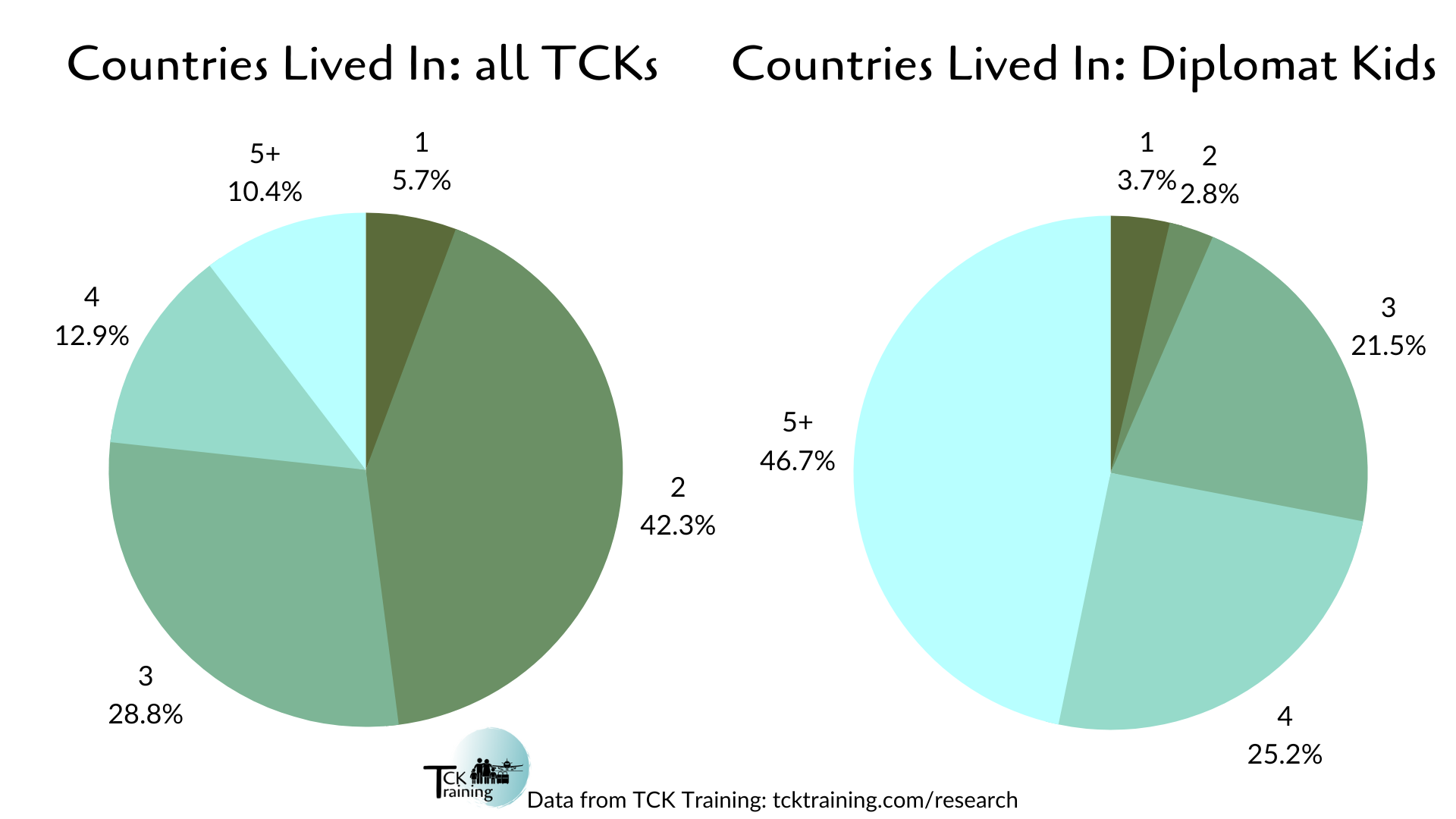
When we look at diplomat kids with high country mobility, we see the source of high ACEs in this sector. 36% of diplomat kids who lived in 5+ countries before age 18 had an ACE score of 4+. This was our missing link.
We need to be careful not to over-extrapolate from these numbers. We surveyed 107 diplomat kids, 50 of whom had lived in 5+ countries before age 18. Of those 50, 36% had an ACE score of 4 or higher. While this is a distinct statistical departure from other groups, it is a small sample. More research is needed to see if these numbers are replicated in larger groups. In the wider sample of all TCKs, only 24% of those who had lived in 5+ countries had high risk ACEs. Still, we know that in our sample, country mobility was correlated with higher ACEs in the diplomat kids and accounted for the high risk ACEs we recorded.
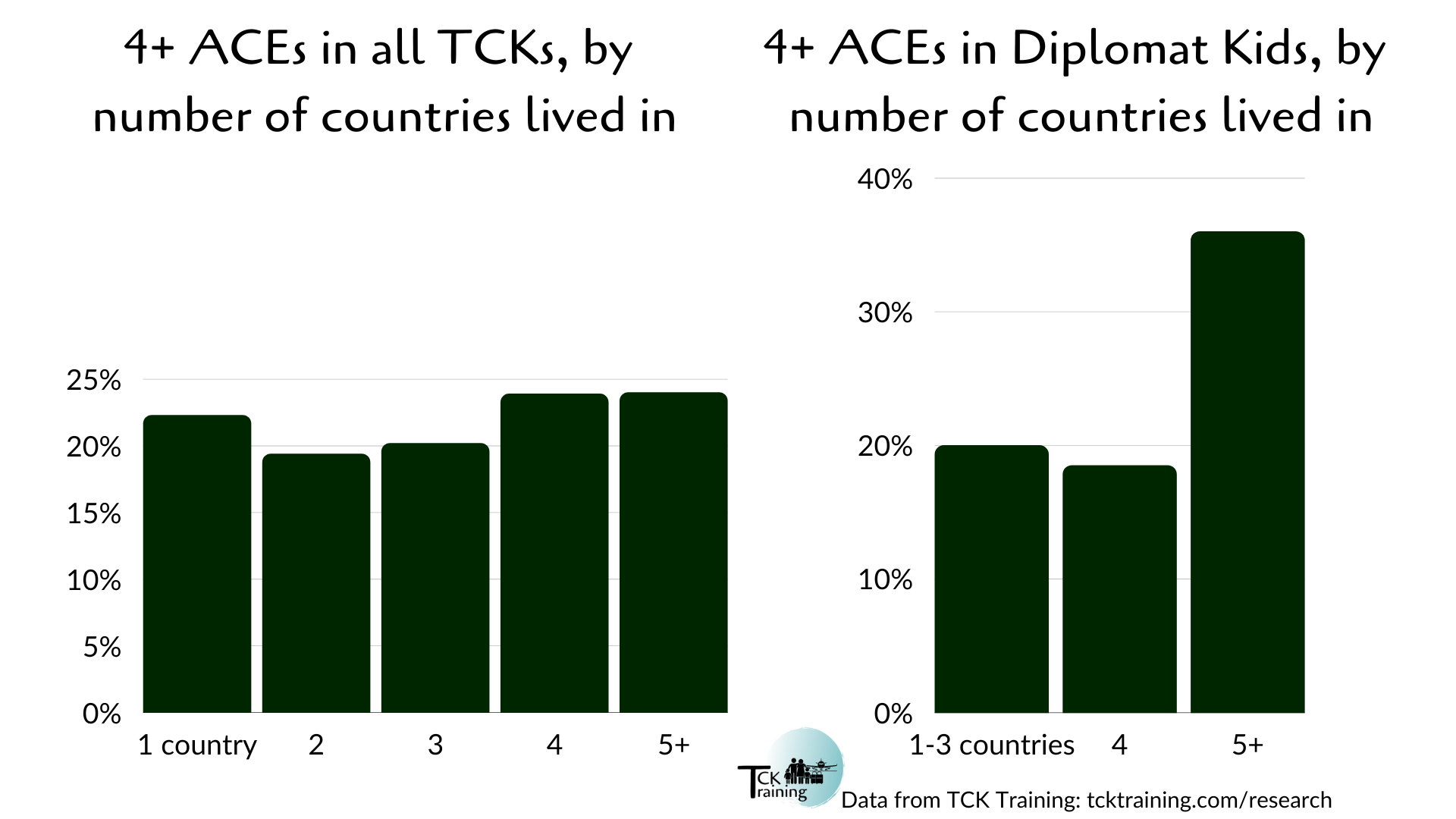
No matter how we look at it, however, we see that high mobility during childhood is a risk factor for negative health consequences long term. For diplomat kids, that mobility often takes the form of living in multiple countries.
Positive Childhood Experiences
This is not, however, a story without hope. The presence of ACEs, and especially a significant portion of diplomat kids who have a high-risk score of 4+, is not our bottom line. TCK Training exists because we also know that there are well-established methods of preventive care that shelter families and children from these risks. In our white paper, we also cite research into the seven categories of Positive Childhood Experiences (PCEs): when a child with 4+ ACEs also has many PCEs in their childhood, they are 72% less likely to suffer depression and mental illness in adulthood. Governments and their social services are starting to pay attention to this research, and how efficient this form of preventive care is in reducing the need for high-level services later in life.
Caution and Hope:
The Prevalence of Adverse Childhood Experiences in Globally Mobile Third Culture Kids
This is why we are so passionate about what we do. Yes, high mobility during childhood can be a challenge - and having research that helps us understand that problem is important. More importantly, we already know how to help! Equipping parents, educators, caregivers, and especially the companies, governments, and other organizations responsible for sending families out into lives of global mobility is essential. Our preventive care services are one of the ways to equip and support families worldwide.
Other blog posts in this series:



